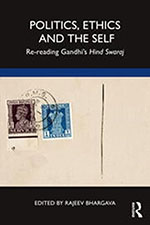Hind Swaraj is one of those key texts published in the twentieth century, which on the one hand, were denounced by many critics, and on the other hand, attracted many scholars and activists, who have been working for an alternative model of modernism. The book was criticized by many scholars, including the first Prime Minister of India due to its so-called ‘outdated’ ideas. However, in this book, Gandhi critically evaluates modern civilization and technologies related to it and questions the modern conception of religion, nationalism, and the prevalent violence-based method to counter the unjust and exploitative system. Indeed, this is a serious attempt to counter the dominance of western epistemology of knowledge through an alternative model, which aims to decolonize the minds of Indians and which is also relevant for other erstwhile colonized societies. Due to this reason, various scholars have continuously discussed the ideas of Hind Swaraj and emphatically underscored its continuous relevance.
The book under review is based on the proceedings of a conference organized by the Centre for the Study of Developing Societies (Delhi) in 2009 to commemorate the publication centenary of Hind Swaraj. Apart from an exhaustive introduction by the editor, Rajeev Bhargava, the book is divided into five parts and nineteen chapters and includes chapters on diverse aspects of the Hind Swaraj by some of the most distinguished scholars of Gandhian thought.

